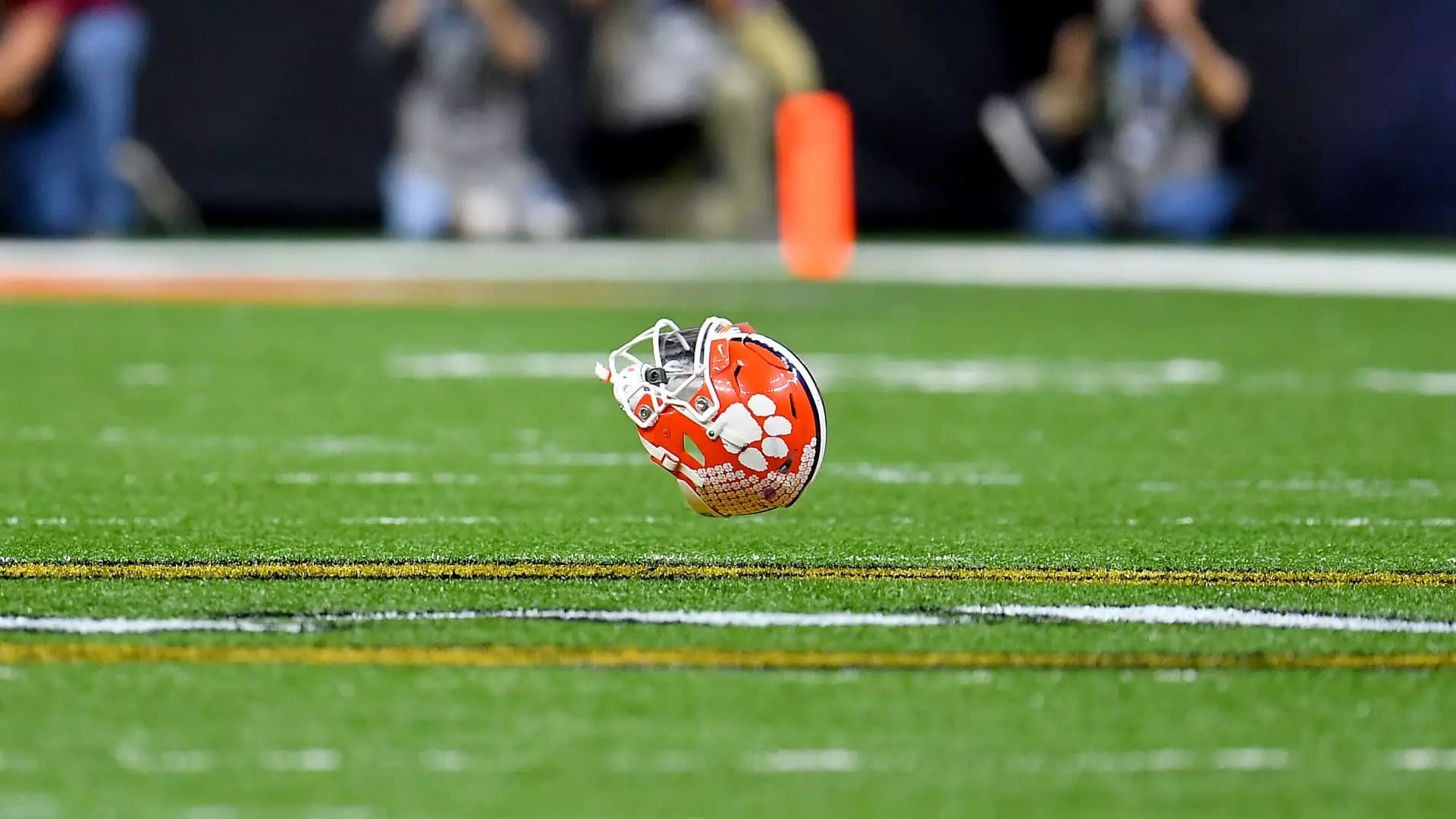The relationship between DirecTV and Disney has gone through a tumultuous period, highlighted by a significant blackout that prevented over 11 million DirecTV subscribers from accessing Disney’s popular channels, including ESPN and ABC. This disruption reigned for approximately two weeks, rendering viewers without access to pivotal sports events, such as the U.S. Open and the electrifying kickoff of the NFL’s “Monday Night Football.” As consumers increasingly gravitate towards streaming services, the stakes in such negotiations have risen, capturing the attention of industry analysts and viewers alike.
The breakdown in talks, which culminated in the blackout, stemmed from disagreements over pricing structures and service bundles. DirecTV expressed a desire for more genre-specific, slimmed-down packages that would allow consumers to pay for only what they wanted to watch—be it sports, entertaining shows, or content for family and children. On the converse side, Disney maintained that the financial terms proposed by DirecTV undervalued the extensive offerings of its networks, painting a picture of a business negotiation that jeopardized customer satisfaction on both sides.
Fortunately for fans and casual viewers alike, both companies found common ground just before the commencement of an affecting college football weekend. In a partnership announced on a Saturday, DirecTV and Disney declared that they had reached a deal incorporating “market-based terms” on channel pricing. This agreement not only returned beloved Disney channels to customers but also expanded service offerings, allowing DirecTV to present genre-driven options, thus bringing adaptability to its traditional cable model.
Most notably, the announcement suggests a promising future for streaming as DirecTV gained the rights to distribute Disney’s anticipated ESPN flagship direct-to-consumer streaming service set to launch in 2025. This means that subscribers can seamlessly access premier sports content without additional fees, aligning with the market transformation that emphasizes on-demand viewing.
The Business of Live Sports
This entire episode has underscored the heightened value placed on live sports content, demonstrating how crucial it is for both cable operators and networks. ESPN Chairman Jimmy Pitaro articulated the damaging repercussions of the blackout, indicating that neither company benefits from being disconnected. DirecTV’s Chief Marketing Officer Vicente Torres acknowledged at a recent conference the significant customer loss during this friction, indicating that attrition was felt and had real consequences.
In light of the blackout, DirecTV provided customers with a $30 credit, an attempt to alleviate frustrations, even as it suspended payments to Disney. This gesture highlights the lengths to which providers will go to keep audience engagement alive amidst unfortunate disruptions.
Beyond individual consumer impacts, small business owners also faced challenges during the blackout, especially those relying on DirecTV for sports broadcasting to attract patrons, such as bars airing NFL games. The timing of such disputes invariably turns complicated when they coincide with significant events like presidential debates and sporting showcases, resulting in consumers missing key broadcasts.
Industry Implications and Future Considerations
The episode brought to the forefront critical issues surrounding media mergers and competition, drawing attention to antitrust concerns prevalent in today’s broadcast landscape. With public scrutiny on maintaining competitive markets, the fallout from such negotiations posits future implications for all parties involved.
DirecTV has initiated a complaint with the Federal Communications Commission alleging that Disney did not engage in good-faith negotiations. While the status of that complaint remains officially undisclosed, it’s clear that these interactions will influence future discussions and strategies within the media ecosystem.
Meanwhile, the traditional pay-TV model faces existential questions as consumer preferences shift dramatically towards personalized streaming experiences. As DirecTV pivots to remind consumers of its multifaceted offerings—beyond satellite services to encompass streaming—its adaptability will be crucial in maintaining relevancy in a rapidly evolving market.
The recent collaboration between DirecTV and Disney embodies a significant shift towards more adaptable consumer packages in the pay-TV arena. The agreement marks a pivotal moment in the streaming age, emphasizing an increased focus on customer-centric solutions. While both parties faced considerable challenges during the blackout, they now have the opportunity to forge a more flexible and resilient future in a competitive landscape filled with evolving viewer priorities. As the industry continues to navigate the complexities of consumer demand and technological advancements, this deal represents not just a resolution but a potential template for future partnerships in the ever-changing world of entertainment.

